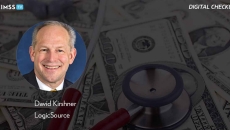Supply chain
As tariffs target medical devices, plastics and packaging, ArcheHealth CEO Ralph Keiser says technologies that analyze pricing data can help hospitals build evidence for renegotiating contracts and increasing reimbursement.
Michael Needham, principal at Efficio, says the Trump administration's tariffs create uncertainty and indecision for business.
The company's computer vision technology tracks supply and implant usage in hospital operating and procedural rooms.
Marcel Botha, cofounder and CEO of 10XBeta, warns that President Trump's tariffs may jeopardize the quality and safety of medical innovations and hinder patient care.
In 2025, providers will face an uncertain global economy, shrinking reimbursements, impacts of inflation, rising operational costs, more expensive labor and supply costs and administrative overhead costs, says AdvancedMD CEO Amanda Sharp.
The supply chain represents 40% of a hospital's budget. The pressure to reduce cost is at an all-time high due in part to slow revenue growth - a major challenge for hospital CFOs - says David Kirshner managing partner at LogicSource.
Bill Kopitke, general manager and head of healthcare at Amazon Business, discusses challenges and solutions to supply chain issues in today's healthcare market.
Naomi Fried, founder and CEO of PharmStars, discusses the company's fifth cohort focused on solving challenges in therapeutic delivery and the 11 startups graduated from its accelerator program, including Cellular Vehicles and ZiO Health.
The collaboration aims to lower the cost of prescription drugs for Capital Blue Cross members.
Shipments of wearables declined 3% year-over-year, according to a report by the International Data Corporation.








